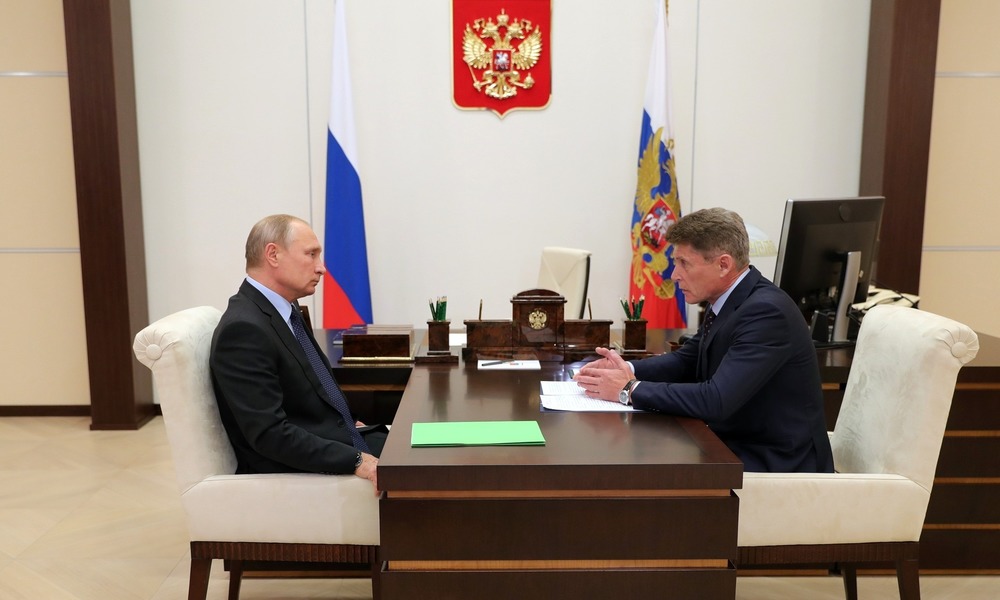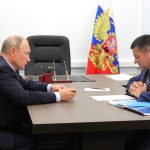RUSSIA MONITOR
Date: 27 September 2018
Kremlin’s Fight for Regions: New Governor Elected
In an article published only a few days ago, we referred to the inept attempt of vote-rigging that could be perceived in terms of a genuine catastrophe for Putin’s regime. The Kremlin-backed incumbent governor has undeniably failed even despite of the fact that right before the voting, he had been met with President Putin, which constituted an unarguable proof for his strong support. Russia’s President reacted quite rapidly.

Held on September 23, the elections appeared highly unfortunate for Tarasenko; we examined his “victory” and its further consequences. Kremlin’s spokesman informed Wednesday, September 26, that President Vladimir Putin had appointed Oleg Kozhemyako, currently the head of the Sakhalin region (since 2015), to be a new acting governor of Russia’s far east Primorski Krai, who was later received by the President in the Kremlin. Kozhemyako immediately expressed his readiness to be a candidate in the polls, which corroborates the fact that he has already become the Kremlin’s “emergency option” that could be used in the case of Tarasenko’s potential defeat in the second round of voting. Naturally, having so badly disappointed Putin, a former acting governor, who had held his post since October 2017, simply “asked for a different job”. Interestingly enough, the regime, which had no intention to lose its influence in such an important region, decided to invalidate the ballot after the election fraud had been too brazen, instead of declaring Ischenko’s victory. Thus, a new United Russia candidate was given an opportunity to compete for the position of the governor of Primorski Krai.
In the first round, held on September 9, the Kremlin-endorsed Andrei Tarasenko won 46.56 percent, which could even guarantee him an election victory. The second round of voting took in the region of Primorski Krai took place on September 16. The candidate of the United Russia ruling party was faced off against by Andrei Ischenko, a Communist Party politician and a deputy of the regional parliament. With 99 percent of all votes calculated, Ischenko was expected to win the ballot as Tarasenko received 18,000 votes less than his main rival. The commission had still some 20,000 votes to calculate, all of them being ascribed to Tarasenko. It was officially announced that the Kremlin-backed candidate won 49.55 percent of the votes while his erstwhile rival was supported by as much as 48.06 voters. The Communists have already questioned the results, accusing an electoral commission of a fraud. The local electoral commission ultimately decided to invalidate the results of a runoff governorship vote after Russia’s central commission had recommended re-running the voting. The polls are scheduled for December 16 at the latest. Ischenko has already announced that he would appeal the decision on annulment of the result, as he currently demands that his victory be officially recognized. Neither the election date nor the candidates are known at the moment. The final decision of Russia’s Central Electoral Commission should be somewhat interesting as both candidates may theoretically face off each other again. Nonetheless, the former has eventually decided to withdraw his candidacy. Theoretically speaking, his place should have been assumed by a candidate who came third in the first round; nonetheless, Putin has decided to use Kozhemyako in his political maneuver in order not to let any other candidates win the ballot.
All texts published by the Warsaw Institute Foundation may be disseminated on the condition that their origin is credited. Images may not be used without permission.














